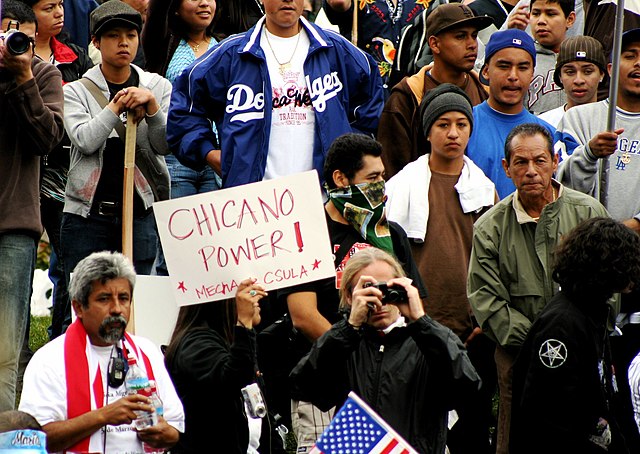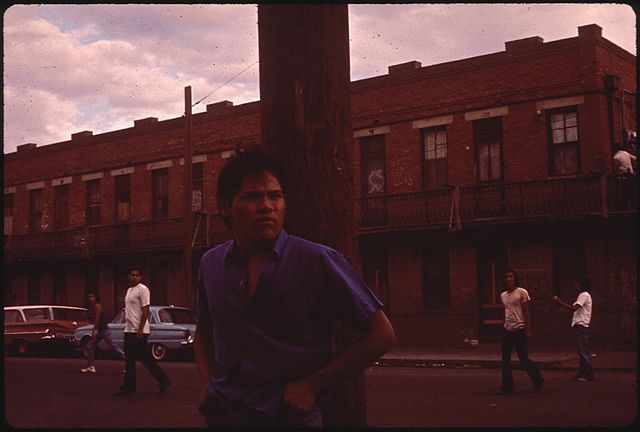The Chicano Moratorium, formally known as the National Chicano Moratorium Committee Against The Vietnam War, was a movement of Chicano anti-war activists that built a broad-based coalition of Mexican-American groups to organize opposition to the Vietnam War. Led by activists from local colleges and members of the Brown Berets, a group with roots in the high school student movement that staged walkouts in 1968, the coalition peaked with a August 29, 1970 march in East Los Angeles that drew 30,000 demonstrators. The march was described by scholar Lorena Oropeza as "one of the largest assemblages of Mexican Americans ever." It was the largest anti-war action taken by any single ethnic group in the USA. It was second in size only to the massive U.S. immigration reform protests of 2006.
Mexican-American Marines in Vietnam, ca. 1970-1972 23.3% of all Southwestern Marine Corps casualties had distinctive Spanish surnames
Aerial view of the August riots
Chicano or Chicana is an ethnic identity for Mexican Americans who have a non-Anglo self-image, embracing their Mexican Native ancestry. Chicano was originally a classist and racist slur used toward low-income Mexicans that was reclaimed in the 1940s among youth who belonged to the Pachuco and Pachuca subculture. In the 1960s, Chicano was widely reclaimed in the building of a movement toward political empowerment, ethnic solidarity, and pride in being of indigenous descent. Chicano developed its own meaning separate from Mexican American identity. Youth in barrios rejected cultural assimilation into the mainstream American culture and embraced their own identity and worldview as a form of empowerment and resistance. The community forged an independent political and cultural movement, sometimes working alongside the Black power movement.
A "Chicano Power!" by M.E.Ch.A. CSULA is held up in a crowd (2006).
El Paso's Second Ward, a Chicano neighborhood (1972)
"Chicana by luck, proud by choice" at 2019 Women's March, Los Angeles
Chicano may derive from the Mexica people, originally pronounced Meh-Shee-Ka.






